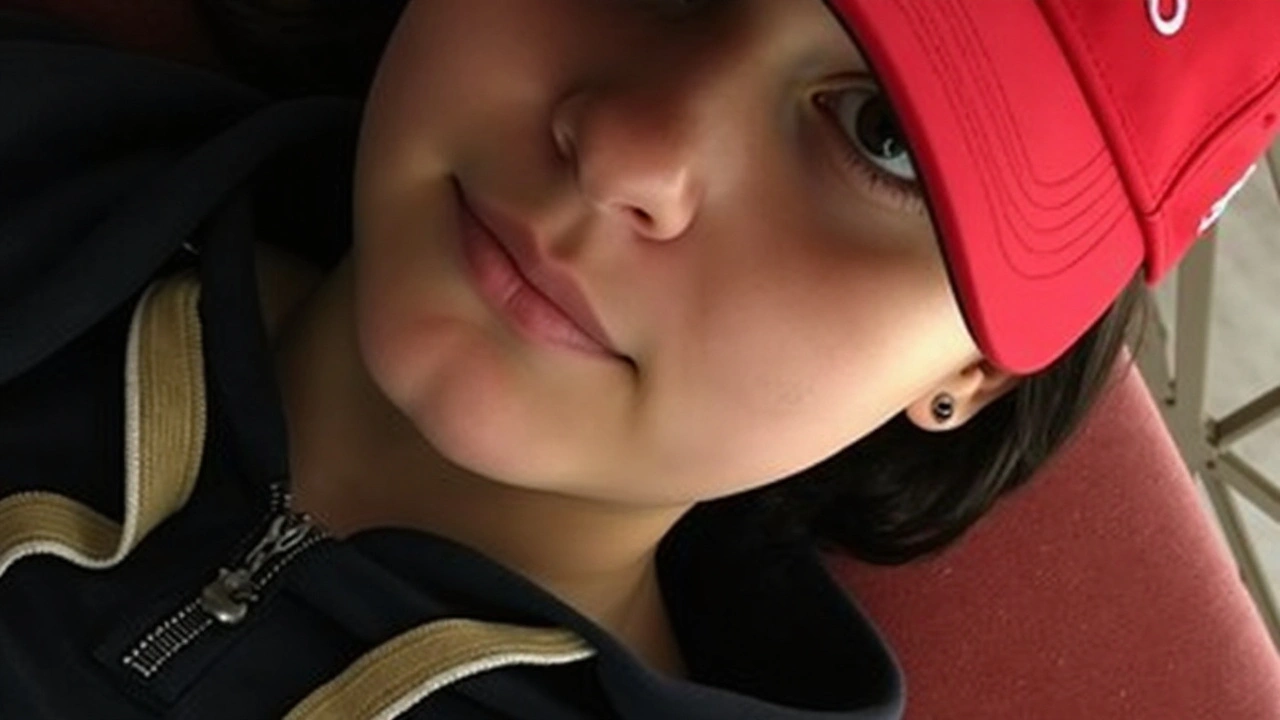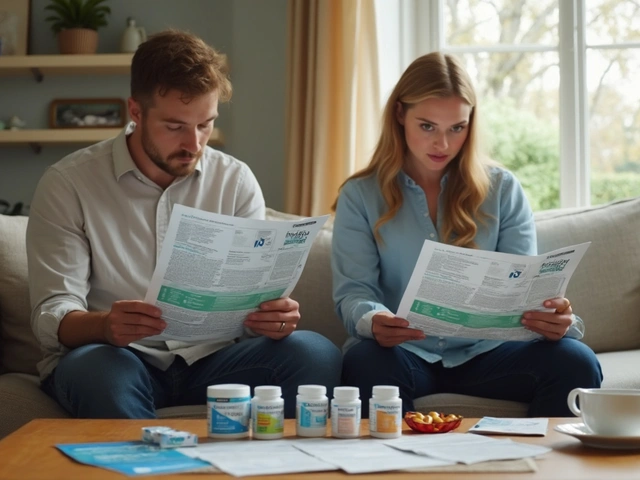
Northland Inquest and the Tragic Stories Behind It
In a deeply unsettling saga that reveals the cracks in a healthcare system meant to safeguard the well-being of its youngest members, the Northland inquest is investigating the untimely deaths of six local teenagers. The inquiry includes the shocking losses of Hamuera Ellis-Erihe, 16, Summer Mills-Metcalf, 14, Ataria Heta, 16, Maaia Reremoana Marshall, 13, James Patira Murray, 12, and Martin Loeffen-Romagnoli, 15. Each of these youth carried their unique stories, yet they were brought together in death by a concerning commonality - their association with the antidepressant fluoxetine, commonly known by its commercial name, Prozac. With suicide alarmingly taking a heavy toll on young lives, this inquiry represents a critical examination of systemic failures and attempts to address such grim statistics with the hope of saving more lives in the future.
The Unfolding of Systemic Failures
While antidepressants such as fluoxetine are designed to alleviate the burdens of depression, which can be crippling in young lives, they are not without their controversies. The inquest into the Northland suicides has peeled back layers to expose the systemic shortcomings and knowledge gaps that can exist in the prescription and management of these medications. Significantly, these hearings have raised questions about the protocols surrounding the dosage increases of such potent medications in young patients, as well as the monitoring systems in place, or the lack thereof. It is undoubtedly a delicate matter when medicine intended to heal holds the potential for causing harm. Each case within the inquest underscores a brutal reality: there’s an intricate balance between treating adolescent depression effectively and not exacerbating their insecure mental health condition.
Fluoxetine: The Pill with Two Faces
The use of fluoxetine or Prozac in youth treatment plans has, for some time, been a contentious issue among healthcare professionals and parents alike. On one hand, it is prescribed for its efficacy in helping teens manage their debilitating depression, ideally leading them towards a life where they can feel hopeful and in control. On the other hand, there’s a growing body of evidence suggesting that these medications can have the paradoxical effect of intensifying suicidal ideation and self-harm tendencies in certain youth. The narrative presented in the inquiry of the death of Summer Mills-Metcalf exemplifies this dichotomy in a painfully personal manner. Summer’s mother, Paula Mills, sought help for her daughter, never fully aware of the lethal juxtaposition experienced by young patients on fluoxetine—what was intended to be a safeguard against despair manifested into its most catastrophic form.
Summer’s Story: A Mother’s Grief and Quest for Answers
Paula Mills’ raw recollection of her daughter's last days imparts a stern reminder of the tragedies that can occur when medicine missteps. Summer was a promising yet vulnerable teenager who bravely confronted her depression with the support of her family and the medication deemed essential by healthcare providers. Only weeks after an increase in her fluoxetine dosage, her life was tragically cut short. This incident underscores the potential volatility of adolescent antidepressant prescriptions and highlights the deeply personal stakes involved in the broader debate over such treatments. For Paula Mills and others like her, the conversation doesn't just concern regulations and statistics; it is about real lives, real loss, and a poignant hunt for informed solutions to protect children struggling with mental health issues.
The Call for Refined Practices and Greater Awareness
This harrowing exhibition of youth suicides demands a systemic overhaul or at least a reevaluation of how medications like fluoxetine are prescribed and monitored in young patients. Many voices, now echoing through the inquest's proceedings, call for more rigorous guidelines that prevent these medications from contributing to the very conditions they are meant to treat. Some advocate for comprehensive education for families and patients about the risks involved, aiming for a more transparent and better-informed consent process that does not hide the uncomfortable truths.
Creating a Framework for Preventative Success
Envisioning a framework where cases like those investigated in Northland are avoided in the future entails a meticulous collaboration between governmental health entities, clinical practitioners, counselors, and educators. Equipping stakeholders with the right tools and knowledge could be integral to fostering an environment where early intervention in mental health issues is both effective and safe. Beyond policy adjustments and protocol refinement, there’s a need for a cultural shift that places mental health on equal footing with physical health in terms of importance and resource allocation.
Hope From Tragedy: Learning from Loss
The heart-wrenching outcomes that the Northland inquest brings to light portray a narrative familiar to too many families who have faced similar losses. Yet, within these stories lies an opportunity—a chance to learn and derive actionable insights that could save future young lives. Awareness campaigns targeting both medical practitioners and the general public could encourage more nuanced conversations about adolescent depression and the potential side effects of treatments like fluoxetine. For those whose lives have been irreversibly altered by loss, turning grief into advocacy can provide solace and the potential for significant positive change.
A Way Forward
As the inquest strives towards uncovering actionable solutions, the emphasis remains firmly on the necessity of evolving our treatment approaches and healthcare policies to better serve our vulnerable youth. These endeavors aim not only to prevent further heartbreaking losses but also to unfold a sustainable path forward wherein young people in need receive the support and care that truly nurtures and protects them. It is through empathy and careful reflection on tragedies like these that societies can hope to build robust safety nets for the generations to come.




Rin Jan
November 28, 2024 AT 19:09This is such a serious issue, and honestly, I feel there’s a lot that needs to be addressed here. The link between mental health and the medication prescribed to youth is incredibly delicate, and we can’t just overlook it because some people think it’s a quick fix. Young people are still developing, both physically and mentally, and throwing them on drugs like fluoxetine can sometimes do more harm than good. I've read reports on how sometimes these medications can exacerbate feelings of depression or anxiety rather than alleviate them.
So what I want to know is, are doctors even receiving proper training to know when and how to prescribe such powerful meds? I mean, we have a responsibility to ensure that the youth in our society are not just becoming test subjects for these pharmaceutical companies. I think more research needs to be done, and parents should be looped in better on these conversations.
The systematic failures point to a greater need for a holistic approach to mental health in young people, rather than just focusing on pharmaceuticals. Are there alternative methods being explored, like therapy or lifestyle changes, before diving into medication? It’s frustrating to see people treated as statistics rather than individuals with their own unique circumstances.
Bryan Kopp
November 28, 2024 AT 19:10Man, I can’t believe we're still having these discussions about mental health and medications in youth. It's insane how many kids are being pushed onto these drugs without any proper assessment. The inquest into those deaths highlights a huge failing in responsibility, and it's about time people take notice. I mean, are parents even aware of the consequences? Or are they just trusting doctors without question?
Every time a story like this comes out, it breaks my heart. Kids are not just numbers on a prescription pad, and yet it feels like society treats them as such. I wonder how many families are suffering in silence because the system isn’t designed to support them. This isn’t just an issue in one area; it’s a national failure!
Patrick Vande Ven
November 28, 2024 AT 19:13From a clinical perspective, the inquest raises some critical points about the administration of fluoxetine and similar medications among younger patients. Indeed, there is a serious need for rigorous monitoring and comprehensive assessment protocols to ensure that we are making informed decisions regarding the mental health treatment of adolescents. The side effects associated with fluoxetine can be quite severe, and these must be thoroughly communicated to both the patients and their guardians.
Moreover, in my observation, there are even cases where clinicians may be overly reliant on such medications without adequately exploring alternative treatment modalities. Therapeutic modalities, including cognitive behavioral therapy, have proven effective in many instances and deserve equal consideration.
This isn’t just about pharmacological treatment; it’s about viewing mental wellness as a multi-faceted issue that requires a diverse approach. There’s also the ethical component to consider when prescribing these medications, which seem to be overly normalized within today’s healthcare framework.
Javier Garcia
November 28, 2024 AT 19:16The deaths of these young individuals are pretty tragic, and honestly, it raises a lot of tough questions about how we approach mental health. I mean, why are we jumping straight to meds like fluoxetine? It feels like there ought to be more comprehensive assessments and conversations first. Surely there's more than just popping pills, right?
What I find particularly alarming is the lack of transparency about the potential risks and side effects associated with these medications. I get that the medical professionals are trying to help, but there has to be a balance between prescribing medication and considering the mental and emotional well-being of the patient. Open dialogue with parents and kids about what’s really going on could change the narrative entirely.
In the end, I feel like we should be prioritizing supportive environments for these kids. Keeping them engaged with their interests and passions could potentially steer them away from depression. What do you guys think? Would love to hear other perspectives!
Dennis Scholing
November 28, 2024 AT 19:20The narrative surrounding the use of fluoxetine in treating young people certainly needs careful examination. There's a pressing need for a collaborative approach to mental health treatment, one that involves parents, healthcare professionals, and most importantly, the young individuals themselves. It can’t be overstated how pivotal it is to ensure that the voices of the youth are heard in these matters. Are they even aware of what they’re facing?
While medication can play a role in managing symptoms, mind you, it must be complemented by therapeutic interventions. These young lives are at a crossroads, and throwing pills at them without proper monitoring, guidance, and emotional support really isn't fair. We need to create safe spaces where these kids can express their feelings and explore coping mechanisms; medication should not be the only option.
At the end of the day, mental health isn't a one-size-fits-all situation. The exploration of alternative therapies, like creative arts or physical activity, could really contribute to a more rounded approach. It’s imperative that we adapt our strategies as we learn more about mental health. Let’s not lose sight of the bigger picture.
Kasey Lauren
November 28, 2024 AT 19:23Oh man, this topic is so frustrating. Mental health and treatments for youth should come with a lot of care and attention but it feels like it's still such a trial-and-error process. The inquest really sheds light on this. I mean, how could we let kids be treated with meds like fluoxetine without stringent checks on their progress? It’s almost like we're asking for trouble!
Plus, what about the families? They feel lost and often don’t know enough about what their children are going through, let alone the medication they are prescribed. What information are they given before consenting to these treatments? We really need to advocate for better communication between doctors, kids, and parents.
It makes me wonder if those lives could have been saved with better support systems. Support systems that don’t involve just shoving pills down throats. Encouragement, understanding, and a safe space for them to talk about their feelings might be what's truly needed. Let’s view these kids as our future and act accordingly!
joshua Dangerfield
November 28, 2024 AT 19:26Ugh, this is such a heavy topic! But it’s great it’s finally getting some attention. I just feel like fluoxetine and other similar medications are sometimes thrown at young folks without really thinking things through. Like, how can a kid really know if it's working for them when they're still figuring out life? Their brains are still developing, and decisions can really really mess with that!
What’s worse is that there's often minimal follow-up after prescriptions are given. It's like they get a trial period and hope for the best. But what if it backfires? Tracking progress or side effects should be a priority, not just an afterthought. There has to be a system in place that emphasizes continuous dialogue between the patient, families, and doctors, don’t you think?
Reading about these tragic cases makes you realize the need for better policies surrounding medication prescriptions, especially with the youth. It's such a heartbreaking reality. Rather, treatment plans focusing on more comprehensive evaluations and support might be needed at this time. It’s terrifying to think of the potential consequences for the kids involved.
Abhimanyu Singh Rathore
November 28, 2024 AT 19:30Whew, I’ve gotta say this issue hits close to home. I've seen too many friends struggle with mental health in silence while the system fails to provide them with adequate support. It’s like, why are we still in a place where treating youth with antidepressants is almost constant without scrutinizing other options first? Something’s going majorly wrong here, and I can’t help but feel angry.
The inquiry into these tragic deaths is necessary to highlight failures, especially in the treatment processes! It’s not just about the medication; it’s about how assuredly we provide guidance through therapy, communication, and potential alternatives before jumping into anything else. These kids deserve better than a prescription; they deserve to be heard and understood.
This isn't just a clinical issue; it's a societal one, and we need to break down the barriers that keep families from accessing the help they need. Mental health advocacy should be everyone's top priority, not just something to be brushed aside!
Stephen Lewis
November 28, 2024 AT 19:33I believe that discussing mental health in youth through the lens of this inquest serves to underline a critical issue that requires everyone’s attention. It becomes essential that we revisit our policies and ensure they are shaped in such a way that they prioritize the well-being of the patients, particularly our younger population. Moreover, equally vital is the role of informed consent and communication surrounding the pros and cons of medications like fluoxetine.
There is a significant gap in the tangible support offered to youths who experience mental health challenges. A wholistic approach may certainly include active participation from multidisciplinary teams — not only physicians but also psychologists, counselors, and even community members. After all, treating mental health should encompass the whole person and not simply focus on symptoms alone.
This inquest must compel all stakeholders to engage in deep reflection on how we structure our mental health services. Reflecting on the tragic losses is a sobering reminder of why we must advocate for comprehensive care that holistically addresses each patient's unique needs, while not rushing into medication protocol without proper evaluation.
janvi patel
November 28, 2024 AT 19:36Honestly, isn't it just baffling? The fact that we still face these problems today in our modern society when we talk about mental health, especially in our youth. The deaths bring to light the serious implications of how we view and treat mental health issues. It’s not just about fluoxetine; it’s indicative of a larger, systemic problem when it comes to young people getting the level of care they truly deserve.
We really have to question the training some medical professionals receive in addressing mental health conditions among adolescents. It’s essential to create an environment where doctors are equipped with the tools to handle these complex situations and approach each case individually rather than relying solely on medication.
As long as we continue to overlook those who are most vulnerable in our society, these type of stories will remain far too common. A long-term solution would involve clear communication channels and educational programs for families, so they can be involved and engaged in their loved ones' treatment. This inquest should absolutely pave the way for policy changes!
Lynn Kline
November 28, 2024 AT 19:40So, I've been reading through the different perspectives on this and it really gives so much food for thought. It's sad to think that so many kids are being prescribed fluoxetine without the necessary checks in place. Where’s the empathy in this whole situation? Just tossing meds at kids seems to be the easy way out for some doctors when they should be diving deeper into these kids' lives. Understanding their struggles is vital!
But what really struck me is how much we need advocacy for mental health! If there were better programs in schools to sort of open dialogues on mental health and self-care, maybe some of these tragic cases could have been prevented. It shouldn’t solely be on doctors to handle everything when so many aspects of a child's environment can be influential.
Sitting here, I just want to highlight that there has to be major changes made to ensure kids aren't just statistical data points and actually seen for who they are with unique stories and backgrounds. I would hope that this inquiry leads to something positive in terms of creating new standards and practices!
Jessica Taranto
November 28, 2024 AT 19:43It appears that the tragic outcomes referenced are emblematic of much deeper flaws within our mental healthcare system! I really can’t stress enough how vital it is for healthcare professionals to take a comprehensive and humane approach when treating young individuals with mental health challenges. The prevalent prescribing of fluoxetine showcases an alarming trend, as the reliance on pharmaceuticals must be paralleled by active efforts to engage patients in their therapeutic process. Are we considering alternative therapies? How are their voices being incorporated?
Moreover, prescribing medication can be intimidating for the youth and their families, especially when they are not adequately informed about the potential risks and benefits. The need for transparency in the doctor-patient relationship cannot be overstated; parents and guardians should always be included in these crucial conversations.
It’s imperative we cultivate an environment where these young individuals feel valued and understood—not just medicated. Together, we should advocate for policy changes that take into account the psychological, emotional, and social aspects of mental health. Only then does true systemic support become possible.
akash chaudhary
November 28, 2024 AT 19:46This is all just utterly ridiculous! I can’t even begin to fathom how we’ve allowed things to get this far with youth and medications like fluoxetine. The systematic failures should lead to intense scrutiny over processes for prescribing these kinds of drugs to impressionable minds. It’s like we’ve almost settled into a routine of medicating kids instead of actually finding solutions that focus on well-being.
I mean, mental health treatment isn't supposed to be this cookie-cutter approach where each kid just gets popped on a pill without understanding the overarching impacts. Why aren't we emphasizing the importance of therapy, family involvement, and perhaps some sort of comprehensive mental health education in schools?
Honestly, if the system can’t figure out how to actually help these youth, then we really need to rethink the entire framework of mental healthcare. It’s not an easy fix, but seeing lives lost over this negligence is absolutely heartbreaking. Change is essential!
Adele Joablife
November 28, 2024 AT 19:50This actually speaks volumes to how mental health is perceived in society! I can’t stress enough that youth need more supportive avenues rather than just jumping to prescriptions like fluoxetine. There ought to be rigorous standards around how we approach treatment, particularly medications. It’s great we’re having these conversations, but they need to lead to action!
Being a supportive environment for our youth means creating awareness and understanding their emotional turmoil and struggles. Talking about mental health in schools could really help! But it also requires accountability from both healthcare professionals and parents to ensure they’re informed about options aside from medication.
It’s high time we prioritize the well-being of our younger generations and empower them to speak up about their feelings openly. There must be a renewed focus on care that encompasses all facets of mental health treatment, and create growth spaces for youth to thrive.
kenneth strachan
November 28, 2024 AT 19:53I can’t believe how many people are talking about this harsh reality of our youth’s mental health. It’s really staggering to read how many are brushing aside the horrors of fluoxetine, and yet, it hits home how little is often done. This inquest is shedding light on a problem that’s been a long time coming! I feel that the youth shouldn’t have to feel like they’re just another number in the healthcare system.
There’s so much pressure on young people today, and instead of piling more on them with meds, why not have comprehensive support systems? Therapies, peer support, and active engagement should be fundamental. It’s often not just a one-solution-fits-all scenario, is it?
As we share our experiences, I really hope this leads to greater awareness on how we discuss mental health within our communities and better education on real alternatives to push for positive change! We owe it to our future generations to break these cycles of neglect!